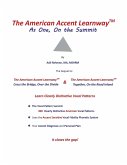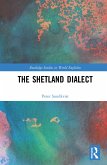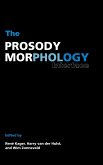When modern discussions of technology arise in rhetoric and composition studies, the topic is almost always related to computers-despite their comparatively recent development and deployment in this millennia-old profession. Computers themselves are new; composition's rush to emergent technologies is not. New teachers face expectations that they will master everything from word processing to the multi-modal essay, from Aristotle's Rhetoric to the classroom whiteboard. While little can be done immediately to change such unrealistic and unreasonable expectations, teachers and scholars can benefit greatly from considering the place such expectations and technologies have in the larger and longer flow of rhetoric and composition studies-from the technology of road building in the ancient world, which allowed students to travel to school from afar, to the technology of handwriting, now largely falling by the wayside. From this past emerge fresh perspectives on the future of writing technologies in the digital age. The story of technology in composition's history and pedagogy is one of stability and change, of short-term success and long-term failure. The essays in ON THE BLUNT EDGE: TECHNOLOGY IN COMPOSITION'S HISTORY AND PEDAGOGY tell the story of rhetoric and composition's long and intriguing relationship with writing technologies, revealing the ways that they have transformed the teaching and understanding of writing throughout history. Contributors include SHANE BORROWMAN, RICHARD LEO ENOS, DANIEL R. FREDRICK, RICHARD W. RAWNSLEY, SHAWN FULLMER, KATHLEEN BLAKE YANCEY, JOSEPH JONES, SHERRY RANKINS ROBERTSON, DUANE ROEN, MARCIA KMETZ, ROBERT LIVELY, CRYSTAL BROCH-COLOMBINI, THOMAS BLACK, JASON THOMPSON, and THERESA ENOS. SHANE BORROWMAN is an Assistant Professor of English at the University of Montana Western, where he teaches composition and creative nonfiction. He is editor or co-editor of numerous collections, including Trauma and the Teaching of Writing (SUNY, 2005), The Promise and Perils of Writing Program Administration (Parlor Press, 2008), and Rhetoric in the Rest of the West (Cambridge Scholars, 2010). Additionally, he is editor/co-editor of multiple first-year composition textbooks and readers. His nonfiction has appeared in publications ranging from Brevity and Conclave: A Journal of Character to Whitefish Review and Rhetoric Review.
Hinweis: Dieser Artikel kann nur an eine deutsche Lieferadresse ausgeliefert werden.
Hinweis: Dieser Artikel kann nur an eine deutsche Lieferadresse ausgeliefert werden.








